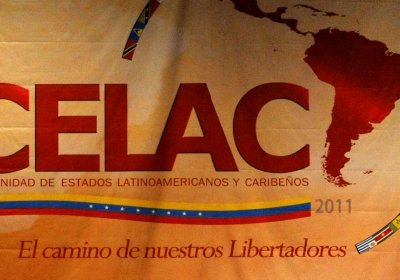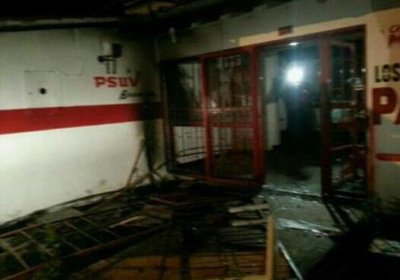Venezuelan President Nicolas Maduro has called for an “eradication” of “colonialism” in Latin America at the annual summit of the Community of Latin American and Caribbean States (CELAC).
During the summit held in Cuba’s capital, Havana, over January 28 and 29, Maduro called for Puerto Rican independence and an end to British administration of the Falklands/Malvinas Islands, to which Argentina claims sovereignty.
Puerto Rica was offered full membership of CELAC under a proposal made to the summit by Venezuela.
Ryan Mallett-Outtrim
Human rights conditions in Moroccan-occupied Western Sahara remain dire according to activists, even though the territory is once again open for business to European fishing companies.
Despite Moroccan pledges to improve conditions for Western Sahara's indigenous Sahrawi, head of the Sahrawi Centre for Media and Communication Mohamed Brahim said the situation is getting worse under Moroccan rule.
“Nothing seems to be improving,” Brahim told Green Left Weekly from Laayoune.
Venezuelan President Nicolas Maduro has announced a slew of policy reforms aimed at combating speculation and hoarding. New government institutions are also being created to regulate trade and oversee foreign currency exchange.
“We have to make real decisions for the benefit of the economy and society, whatever the cost and whatever happens,” Maduro said on November 6.
Describing the package of reforms as an “economic offensive”, Maduro pledged to “strike hard” at speculators and hoarders.
Venezuela's finance minister, Nelson Merentes, presented a draft 2014 budget to the National Assembly on October 22 that devotes more revenue to social services, while predicting continued economic growth and lower inflation.
About 62% of the 551 billion bolivars budget (about $92 billion) would be devoted to social services, compared with 37.7% this year.
The UN General Assembly has voted for the 22nd consecutive year to reject the US embargo, with 188 nations opposed the embargo and three abstentions.
Only the US and Israel voted in favour of the continuation of the embargo, which has been in place since 1960. The UN resolution is non-binding.
On October 29, Cuba's foreign minister Bruno Rodriguez described the embargo as “extraordinary” and “barbaric”.
Venezuelans rallied to condemn fascism on September 11, marking the 40th anniversary of the United States-backed coup d’etat in Chile that ousted left-wing president Salvador Allende.
The rally began at Plaza Salvador Allende at the Central University of Venezuela (UCV) and marched through the city centre to Llaguno Bridge. On the bridge is a memorial to those killed during the 2002 US-backed coup that temporarily removed former Venezuelan president Hugo Chavez from office. Chavez was restored by an uprising by loyal soldiers and the poor.
After 40 years of struggle, in the place known as “Africa's last colony”, human rights abusers continue to be given a free hand by the international community.
As Western Sahara's independence movement, the Polisario Front, commemorated four decades of struggle on May 10, news broke of a Sahrawi activist who died in a Moroccan prison three days earlier.
Venezuela's new Labour Law for Workers came into effect on May 7, guaranteeing shorter working hours, longer maternity leave and pensions for all Venezuelans.
Described by the Venezuelan government as the “most advanced labour law in the world”, the law reduces the working week from 44 hours to 40, and requires that employers provide two consecutive days a week off.
When the law came into effect, labour minister Maria Iglesias said the new working hours are part of the process towards a “just distribution of wealth”.
It would be hard to find somewhere that celebrates May Day more enthusiastically than Venezuela. But this year celebrations were marred by claims made in a document that could easily be mistaken for a lift-out from a UFO enthusiasts' magazine.
As the Venezuelan opposition is emboldened by chaos on the streets, reactionary propaganda on the private airwaves that still dominate Venezuela's media landscape and firm support from Washington, now is the time for the international left to galvanise support for the Bolivarian revolution.
Under the false pretext of electoral fraud, the right-wing opposition leader Henrique Capriles tried for a power grab after losing presidential elections on April 14, threatening to destabilise the country.
The room erupted into cheers when the election results were announced. For hours, the city of Merida's most ardent supporters of socialist presidential candidate Nicolas Maduro had gathered in the local offices of the United Socialist Party of Venezuela (PSUV). However, after a few moments, the closeness of the numbers sank in.
At the time of writing, the National Electoral Council (CNE) had announced that with 99% of votes counted, the PSUV's Maduro won with 50.6%. His closest rival, Henrique Capriles, received 49.1%; giving Maduro a slim 1.5% victory.
In the week leading up to Venezuela’s April 14 presidential elections, whistle-blowing website WikiLeaks published a classified cable indicating that US-based aid organisations were working to overthrow the government and defend US corporate interests in the Andean country.
- Previous page
- Page 3
- Next page






